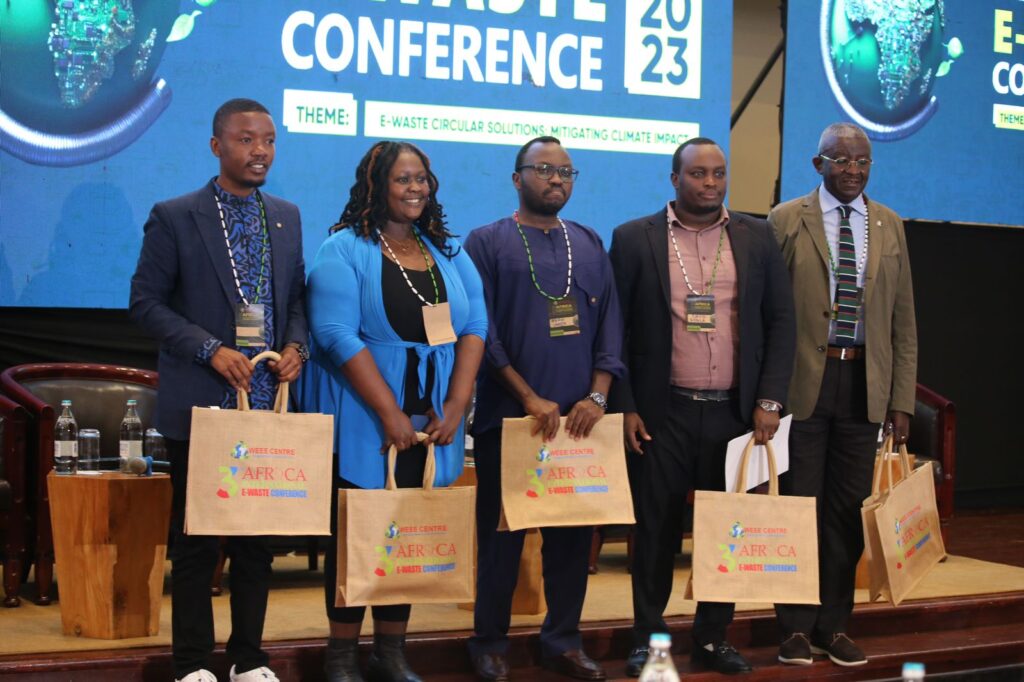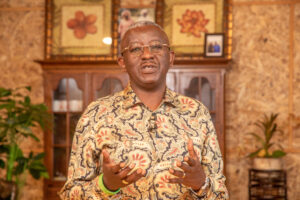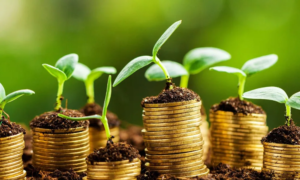Last week’s experience at the prestigious 3rd Africa International eWaste Conference hosted by WEEE Centre in Nairobi, where I had the honor of speaking, has left my mind buzzing with excitement and ideas.
According to CK Joshua, the Chairman of East Africa Device Assembly Kenya (EADAK), there are 62.9 million mobile phone devices in Kenya, and notably, the market absorbs an additional 5 million new devices annually. This actually means that millions of phones become e‑waste every year. Considering that one phone has an average of 150 grams, the cumulative weight of phones is roughly 9,320 tonnes, which paves the way for tonnes of e‑waste phones.
Additionally, the Kenya National Bureau of Statistics reports that Kenya imports 7,000 secondhand vehicles every month. From my experience, ninety percent of these vehicles receive new car audio systems due to system language barriers and updates, resulting in at least 6,300 systems, each weighing 1.8 Kgs, being discarded monthly. Adding to this e‑waste pile are discarded toys which on average weigh at 300grams, which based on our mean age are estimated to accumulate to an astonishing 15,100 tones!
Now that we have a sense why we are accumulating so much e‑waste which is so hazardous to our health and environment, let us unearth the economic opportunities inherent in e‑waste.
According to the IMARC Group, the global e‑waste management market was valued at $63.4 billion in 2022 and is projected to grow to $132.5 billion by 2028, driven largely by the recovery of valuable materials like iron, copper, gold, and plastics from e‑waste. Fortunately, in Africa, only 1% of electronic waste is recycled, resulting in the continent having the lowest rate of formal e‑waste recycling globally and therein lies our unmatched opportunity for green money!
We can learn from Enviroserve, a leading electronics recycler, whose Dubai plant processes e‑waste from 10 countries across the Middle East and Africa. This innovative plant recycles up to 98% of materials from electronic devices into raw materials, which are then sold to various industries. Interestingly, some of the gold jewelry in The Dubai malls originates from recycled e‑waste gold. Additionally, Enviroserve’s Rwanda facility, which joins WEEE Centre as the only other advanced e‑waste recycling plant in East Africa, processes a significant amount of Kenya’s e‑waste. This recycling not only yields profits but also means that some gold jewelry bought in The United Arab Emirates by Kenyans may have originated from Kenya’s e‑waste.
So how do urgently transform this challenge into a lucrative opportunity?
Firstly, we need to establish a practical recycling infrastructure. I suggest simplifying the process by implementing effective public awareness and training programs that define e‑waste in understandable terms for Kenyans. Following this, we should incentivize them by offering payment for e‑waste delivered to well-equipped, strategically located collection points at the grassroots level. This approach will also address the significant challenge posed by cartels entrenched in the informal sector and existing companies and new ones will optimize profits through increased flow of raw materials.
Secondly, I suggest that we harmonize our regulatory framework with realities. Our laws prohibit e‑waste importation, yet imported cars often have audio systems replaced upon arrival, effectively introducing e‑waste. Moreover, while we enacted the Extended Producer Responsibility (EPR) law on July 22, 2022, we must also enforce stricter quality standards for imported products. Additionally, considering Rwanda’s successful e‑waste processing imports, we should reevaluate our stance on importing e‑waste given its potential value. Even more, bearing in mind the hazardous waste contained in e‑waste and the danger it poses to public health, why not turn some health budgetary allocation to e‑waste management?
Finally, if Kenyan university students from of JKUAT invented a weed-removing robot and won a global Microsoft award, what is so complicated about transferring technology, particularly in e‑waste processing? Isn’t that a mental block we need to flush out? Each of our 47 counties possesses sufficient budget and human resources to report success in e‑waste management and create jobs. Think green, act green!



